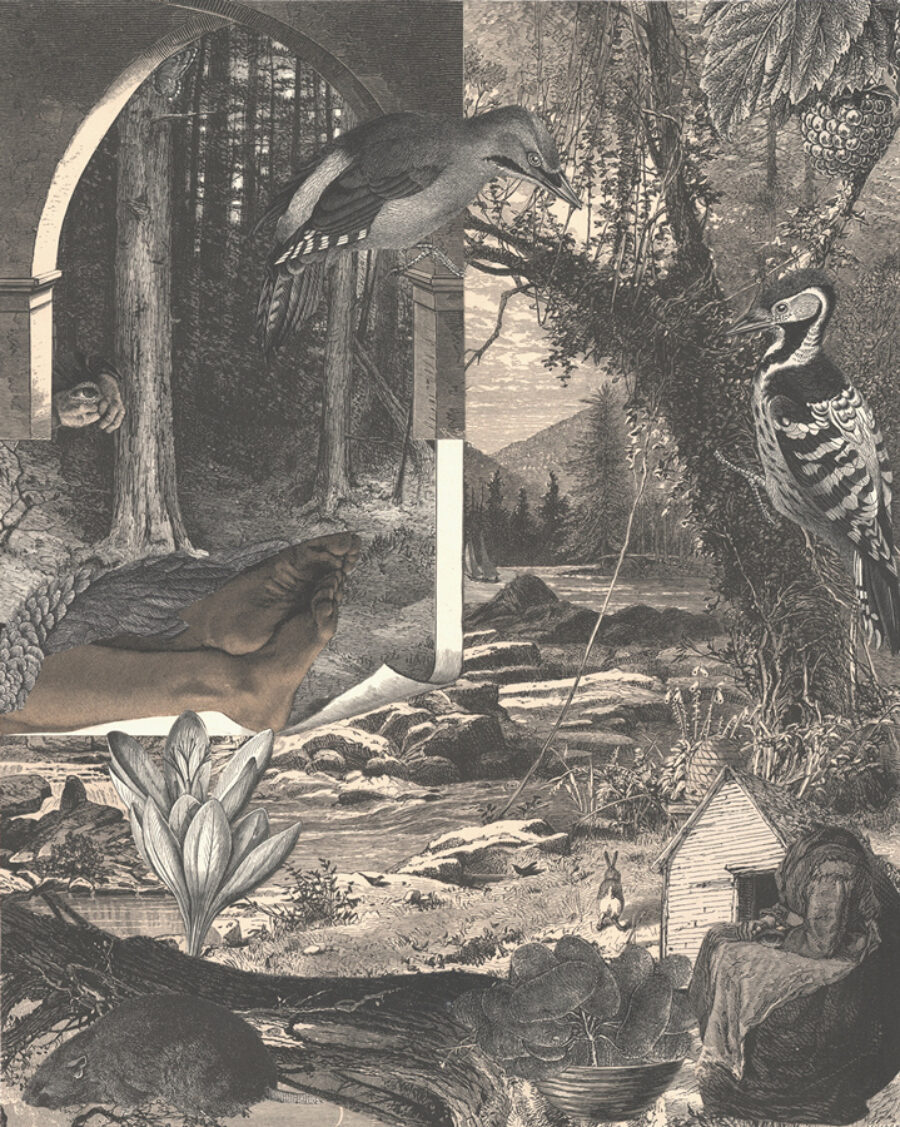
Collage by Catie O’Leary for Harper’s Magazine
Ina
Ina had lost her vision when she was only seventeen. She suffered a high fever due to a malady that had torn through the fiefdom. The entire family fell ill very quickly, one by one, mother, father, and her two little sisters. Ina fell asleep, shivering and sweating, and when she awoke, she came to nothing but the black light of her blindness and the stench of her family’s dead bodies in the bed around her. Such stories were not unusual at the time—illness spread very easily in the region, as it was only a day and night away…







































































































